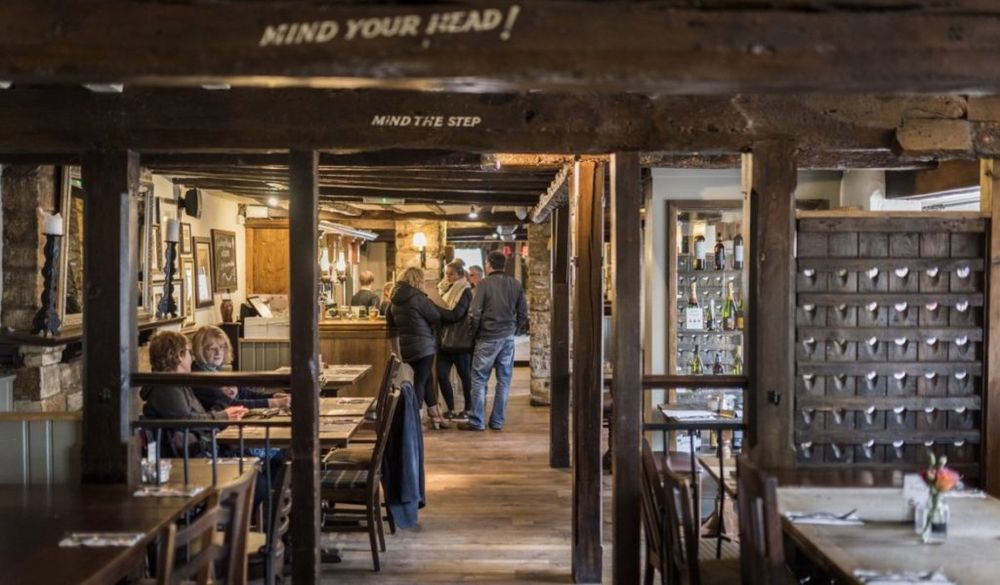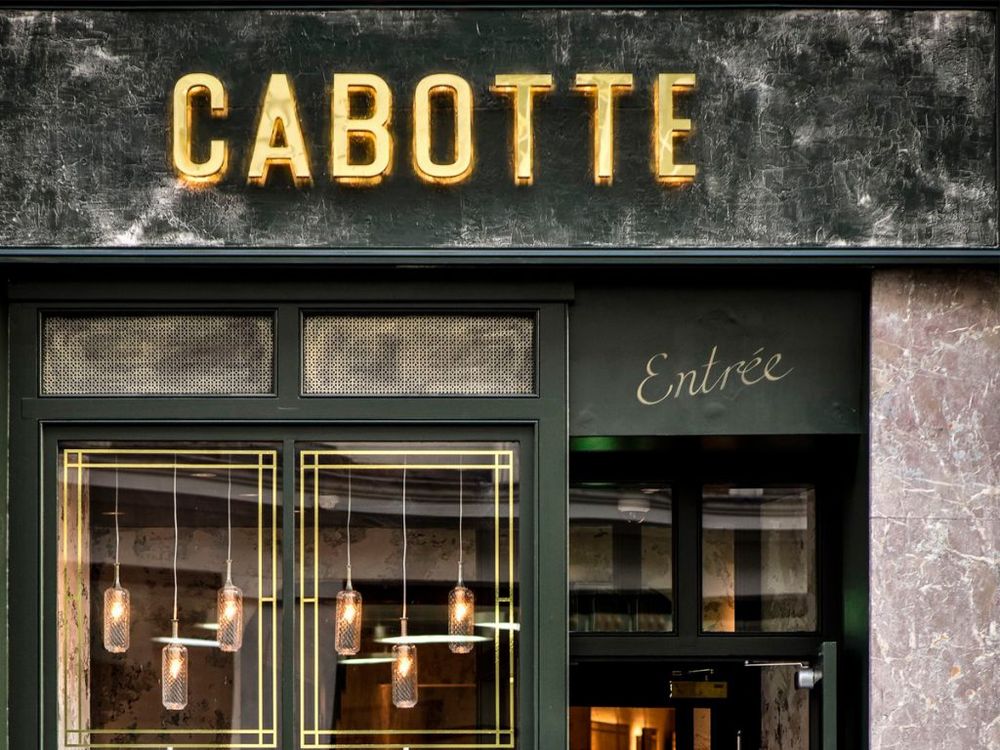So how are restaurants and bars going to re-open in early July? This illustrious panel of leading restaurant and sommelier figures have some of the answers, but also have a lot of questions to ask as well.
The UK hospitality sector is facing the biggest fight of its life, with the impact of Covid-19 closures likely to reverberate for years to come. While some restaurants and bars will emerge, battered and bruised, the government-mandated closures will undoubtedly sound the death knell for other who will simply be unable to recover from the devastating impact.
Even before the enforced shutdown of every bar and restaurant in the country, the industry was struggling, with the casual dining sector particularly hard hit.Insolvency rates in the hospitality trade are double those in the general retail sector, and five times higher than in professional services, with Jamie Oliver and Carluccio’s just two of the recent big name casualties.
What restaurant leaders are going to do
To address how the industry can get back on its feet and make the best of the new restrictions on business, Flint Wines recently held a virtual panel discussion on the impact of the pandemic on the hospitality sector and how some of its most successful players are coping. They discussed how they plan to return when the sector is finally opened up – now confirmed for July 4 in England Wales and July 6 in Scotland – and how they are going to incorporate social distancing measures to ensure their staff and customers remain safe.

The Ivy Collection part of Caprice Holdings – it will be interesting to see how it maintains the magic and allure of its restaurants post lockdown
Jason Haynes, director of Flint Wines was the man chairing the session, while also in remote attendance was his colleague Geaoid Devaney MS; Sara Gill owner of the Dairy, Sorella and Darbys; Clement Robert MS, group head sommelier and wine buyer at the Caprice Holdings; Jason Atherton, chef and owner of The Social Group, and Stefan Neumann MS, director of wine at Dinner, the Mandarin Oriental.
All agreed that there was no “magic recipe” for how to cope with the social distancing measures, which restaurants will have to observe when they could reopen for business, as every restaurant is different – and the rules are changing all the time. But what it boils down to, according to Neumann, is trust.
“Trust between team members, from staff to guests, and from a company perspective to suppliers, too. If you have trust and a solid foundation, then you can adjust to the rules as you go. At Heston, we’re lucky to have a big space. We [used to] do between 80 and 120 covers every lunch, so if we halve that, we’re still able to make a decent living.

Stefan Neumann MS says trust is going to be a key for when restaurants re-open
“I do feel for smaller restaurants,” he added. “The bigger groups are likely to have more knowledge to pool from and more cash flow. They will need this not only to get guests coming in, but money to spend with suppliers.”
Safety first
Regarding the reopening of the trade, Jason Atherton said: “In the short term, those who go the extra mile will be successful as word travels fast. People will want to go back to all the places they missed. They will want to eat the dishes they have missed, cooked by their favourite chef and served by their favourite waiter. But if they feel for a single second that you [as a business] are not taking a safety first approach, then it will backfire.”
While he said that “no one wants to be served by a sommelier mumbling through a mask” he stressed that safety and building trust in consumers was paramount. “You don’t want your waiter to pour sauce on a dish from two metres away then dump it and run like a smash and grab scenario,“ he said. “But our business can live with the one metre space, and if we have to wear masks we will.”
Measures Atherton is introducing to his restaurants include “sanitation stations” dotted around the venues as well as in the toilets, while customers would be sent menus and wine lists in advance.

Jason Atherton was able to set out some of his plans during the Flint Wines debate
All agreed that how they manage the process of re-opening would have to come down to the individual restaurant, with space being the major factor in how successfully a business will be able to operate. Jason Atherton confirmed this week that most of his restaurants won’t re-open until August 1 with some waiting until September, rather than jumping straight back in on July 4.
Clement Robert said it was very dependent on the individual establishment as to whether it would be possible to operate with social distancing in place. “If you are in Covent Garden the theatre won’t likely be open until 2021, so if you take Balthazar, with 1,000 covers a day in the heart of Covent Garden – if there are no tourists, then you will not have the clientele.”
The likes of Annabel’s would be able to implement social distancing more easily than smaller outfits, Robert conceded “as we have tons of space”. But he pointed out it was still vital that restaurants and bars looked carefully at the flow of customersand staff.
“You need to look at the traffic of people –the staff coming out of the kitchen carrying plates, guests going to the toilet. For that reason alone you need to remove some tables. And also police toilets and the floor in a hospitable manner. You need an extra member of staff to do that and make sure the restaurant feels safe. It is a very tricky situation and there is not one recipe that will fix all restaurants. Each needs to look at their space and business model and act accordingly.”
Walk on by
Whether they would consider walk-ins from the street when they reopen was another issue the panellists discussed. Neumann said that in London his staff have started checking the temperature of every staff member entering the building, while some hotels even have heat sensitive cameras to detect if someone has a fever. “But I don’t think this will discourage us from taking walk ins,” he said. ”It’s all about trust and trust goes many ways. I need to build it between my staff and guests.”

Sarah Gill talking during the debate about how her restaurants in Clapham can re-open
For Sarah Gill, running two 13-seater neighbourhood restaurants in Clapham– Sorella and the Dairy – it would be impossible to open until social distancing measures are removed. “It’s so difficult to plan at the moment.” As for the issue of face masks, she said that while some people are opposed to wearing them, others are for it. “Maybe we will take away menus and just use blackboards,” she mused, “though I would prefer our team not to be wearing masks. Until we can open and trade normally we won’t be able to open all our restaurants.”
She added that both Sorella and the Dairy had “tiny kitchens” making social distancing for the kitchen staff an impossibility, though at Darbys in Battersea there is space for chefs to work safely. She added that she was considering approaching the council and asking for permission to put tables outside, and suggesting that the road be pedestrianised to enable small businesses such as hers to start trading.
But the last thing she said she wanted to happen was for the restaurants to open up, only to be forced to close again in six months time. “We would rather have support from the government to stay closed, so that we can operate properly when we do reopen,” she said.
World opening up

Restaurants in China – and Atherton’s in Shanghai – have done well since the lockdown was lifted there – but there are no concerns over a second wave
But it wasn’t all doom and gloom, with Atherton reporting some positive news from his business’ outpost in Shanghai. There, his two restaurants are currently open and have enjoyed “the busiest month on record, up by 20% with no social distancing in place. That’s 60 covers doing 150 for lunch and 160 for dinner every day.”
Dubai’s hospitality industry opened up a few weeks ago, but with a government-imposed ban on all alcohol, turnover and profits will be affected. However, Atherton said he still intended to open up, despite the ban, and the fact that social distancing measures would mean that he could only operate at 20% occupancy.
“After Shanghai and Dubai, the UK is the next wave,” he said, adding the furlough scheme is not really fit for purpose. “The new furlough scheme doesn’t really work. If as a business, you’re paying 25% plus PAYE. But if you don’t need all those members of staff, why would you pay it?”
He says the rent on Pollen Street Social alone is £55k a month, but the most he could turnover at 40% capacity – taking into consideration what was then the proposed two metre social distancing rule – would be £160,000. “There is no wiggle room at all,” he said, adding that while everyone is blaming greedy landlords, he had a certain amount of sympathy for their position, pointing out that many are so leveraged up that they are reliant on their rental income, and not receiving any financial support from the government.
“So we have to pay our rent,” he said. “We are stuck between a pillar and a hard place. What else can we do? Continue to pay and hope that things will recover. But it’s really tricky when you have multiple sites.”
On-trade is not one entity

The on-trade is so diverse it needs different measures for different operators, says Atherton
What the industry really needs, claimed Atherton is a members industry group to enable them to effectively communicate with the government, pointing out that the mistake the government makes is in assuming that the hospitality business is generic.
“They treat hospitality as one entity, but what Pollen Street Social needs is completely different to what O’Neills or Leon needs. There are so many areas that need looking at, as our industry is so sensitive to these things. Either we do that or we face huge redundancies, not to mention Priti Patel’s immigration plan, [all of which] could put the industry back 20 years.”
Despite the massive shock of being forced to close their respective businesses and furlough staff, there have been some positives to come out of the situation. Sarah Gill reports that since lockdown she has been running a takeaway and bakery service as well as home deliveries, which she says are “thriving”.

Cabotte will be looking at takeaway and delivery service to help it re-open in the City
Gearoid Devaney says that when Cabotte opens it will be more of a relaunch, and is currently looking at the possibility of offering a takeaway service for local offices. “If they [office workers] don’t feel comfortable going to restaurants maybe we can bring food to them,” he said. “We may initially open up with limited hours – perhaps just opening for lunch and not in the evening immediately.”
Robert is confident consumers will also now be far more understanding of what goes into a quality meal in a fine restaurant: “When people shop at home for ingredients they come to realise how expensive good food is. Some of the restaurants almost look cheap now – a brilliant plate of food from a world-class chef. You can see the costs of trying to replicate that a lot of people will have more sympathy for how much restaurants charge.”
We have the technology
Technology might be another tool restaurants can successfully deploy to help them navigate their way through the logistical nightmare of opening up while adhering to strict social distancing rules. “We are thinking of possibly using iPads for people to order from, and perhaps operate on a more bookings basis with fewer walks ins, and fewer folk at the bar, but in the initial stages it will be online bookings so we can plan for that,” says Gill.
A restricted menu offering might help ease the way back into some kind of normality too. “It depends on the kitchen team for sure, and how many we can serve, but we will probably have to haveshorter menu, and we are also looking at the possibility of offering a picnic menu where you can take your picnic to the park,” she added.
Robert said offering digital wine lists that customers can peruse before booking was a definite possibility. “The idea of having a sommelier breathing one metre from your face is no longer viable,” he says.
Even at one metre there is going to be much for the restaurant trade to get right come July 4 and beyond.









































